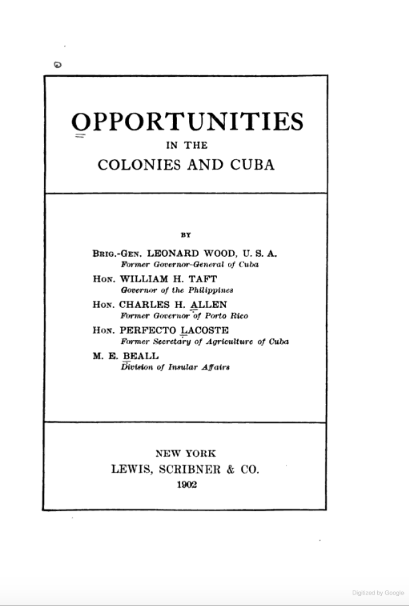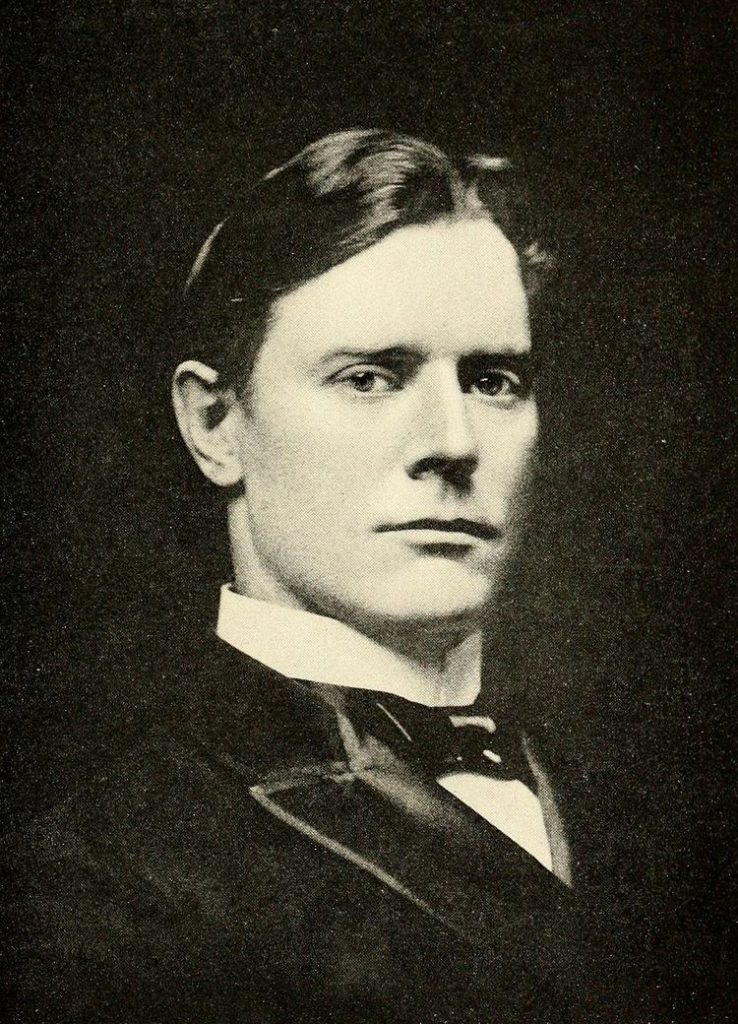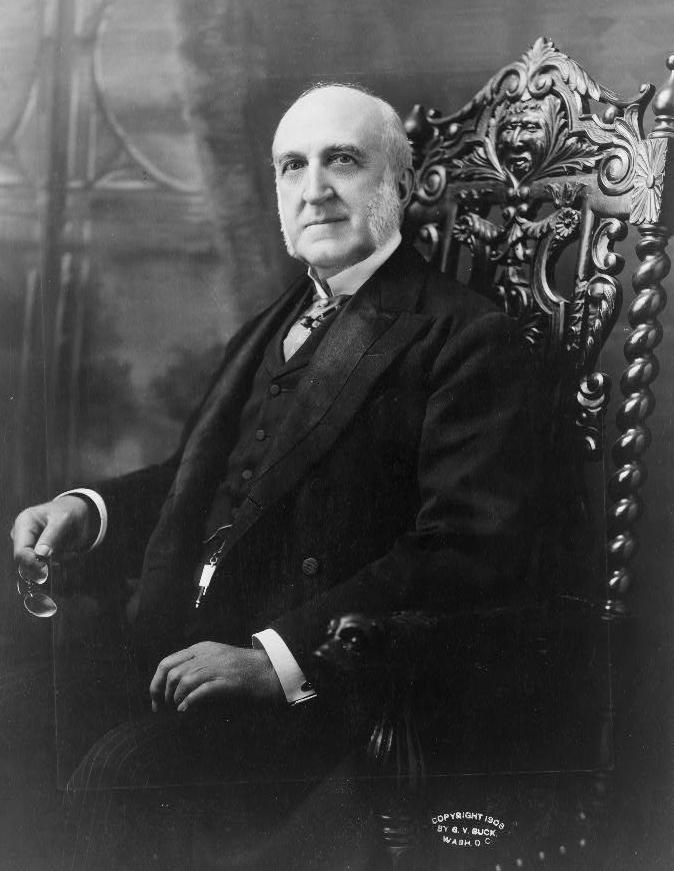Leonard Wood, William Howard Taft, Charles Herbert Allen, Perfecto Lacoste, and Marion E. Beall. Opportunities in the Colonies and Cuba. 1902
In an effort to describe the economic and industrial opportunities overseas, Leonard Wood, William Howard Taft, Charles Herbert Allen, Perfecto Lacoste, and Marion E. Beall published this book in New York. Written in 1902, the authors use themes of industry and masculinity in order to convince curious readers of America’s efforts to expand in former Spanish colonies, including the Philippines. In this excerpt, they defend the choice of Puerto Ricans to emigrate as it provides economic opportunities. They generalize Puerto Ricans as poor and suggest that the island needs “men with capital, energy, and enterprise” in order to open the opportunity to industrialize and “make the country hum with the busy sound of commerce.” During this period, notions of masculinity were centered around imperialism, expansion, and industrialization. This source was found on Kristin Hoganson’s Fighting for American Manhood in its bibliography section. It was later accessed through Google Scholar.
Beveridge J., Albert. “The Young Men in America,” address of Oct. 18, 1900
Albert J. Beveridge, an Indiana senator, delivered this address to American citizens in 1900 during his time in office. Although the publication location is unknown, Beveridge, who was largely in favor of American imperialism, metaphorically described America reaching its “young manhood” as part of its growth process. By casting this national metaphor and moving towards expansion, imperialists such as Beveridge proclaimed the the world was “their [Americans’] field” as part of an inevitable process. After Annexing the Philippines, the embodiment of masculinity and authority allowed imperialists to justify America’s actions in foreign soil as part of the evolution from Victorian ideals. This source was found on Kristin Hoganson’s Fighting for American Manhood in its bibliography section. It was later found in its entirety through Google Scholar.
Watterson, History of the Spanish-American War, viii; “Sidneys of Our Day,” Century Magazine 57, Dec. 1898
Chauncey M. Depew, a New York senator, applauded the war’s effects on American men’s psyches at the Republican convention of 1900. Although the publication location is unknown, Depew, who supported American imperialism, describes the progress in America’s expansion overseas as a “world power” and flaunts his belief that martial endeavors were good for the nation and its men. After annexing the Philippines and other former Spanish colonies, Depew claims that “there is not a man here who does not feel four hundred percent bigger in 1900 than he did in 1896.” He argues that imperialism has allowed men to grow intellectually, patriotically, and build hope as the nation claims its global power. He alludes that American mens’ embodiment of masculinity has vitalized them and opened the opportunity to build character. Along with Depew, other pro-imperialists such as Theodore Roosevelt, Albert Beveridge, and Henry Cabot Lodge regarded manly character as the foundation of American democracy. This source was found on Kristin Hoganson’s Fighting for American Manhood in its bibliography section. A full version of the source was found on Google Scholar.



